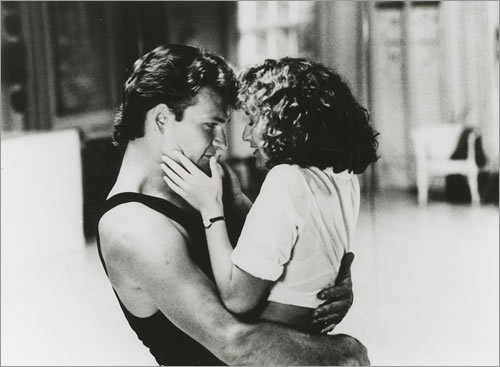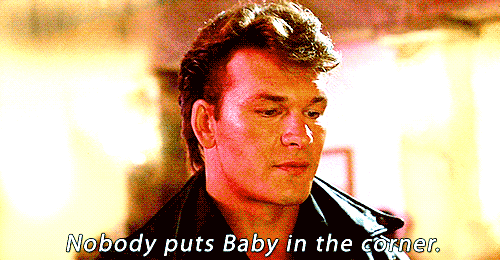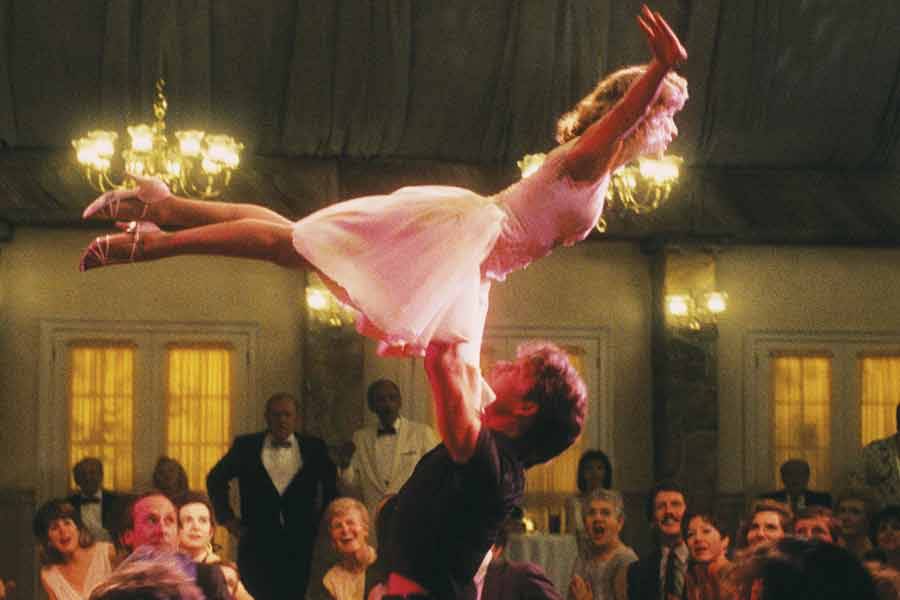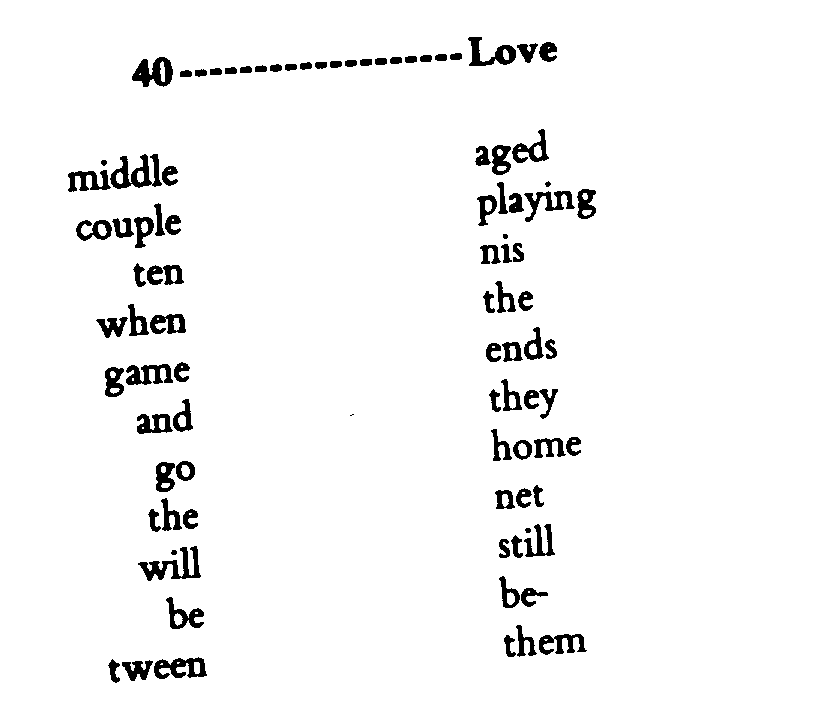It's been a while since my completion of
The Crossing and
Cities of the Plain so the quotes I post are a mixed jumble of both. Long overdue, but here:

The wolf sat watching with her ears forward and her nose making constant small correction in the air. As if to make acts of abetment to the life in the world.
The quote above is just pretty. How humans may wish we had that link with nature - but I'm sure we do.
The old man said that it was not a question of finding such a place but rather of knowing it when it presented itself. He said that it was at such places that God sits and conspires in the destruction of that which he has been at such pains to create.
Pains to create destruction... everything takes effort.
Men do not turn from God so easily. Not so easily. Deep in each man is the knowledge that something knows of his existence. Something knows, and cannot be fled nor hid from. To imagine otherwise is to imagine the unspeakable. It was never that this man ceased to believe in God. No. It was rather that he came to believe terrible things of him.
Love the one above. Speaks of losing faith - but in defense, beautifully as it is written, I suppose there are men who never believe in God, but yes to something that recognizes his existence.
“The wicked know that if the ill they do be of sufficient horror that men will not speak against it. That men have just enough stomach for small evils and only these will they oppose. He said that true evil has power to sober the smalldoer against his own deeds and in the contemplation of that evil he may even find the path of righteousness which has been foreign to his feet and may have no power but to go upon it. Even this man may be appalled at what is revealed to him and seek some order to stand against it. Yet in all of this there are two things which perhaps he will not know. He will not know that while the order which the righteous seek is never righteousness itself but is only order, the disorder of evil is in fact the thing itself. Nor will he know that while the righteous are hampered at every turn by their ignorance of evil to the evil all is plain, light and dark alike. This man of which we speak will seek to impose order and lineage upon things which rightly have none. He will call upon the world itself to testify as to the truth of what are in fact but his desires. In his final incarnation he may seek to indemnify his words with blood for by now he will have discovered that words pale and lose their savor while pain is always new.”
Okay, the last line is brilliant. but besides that, this is an important chunk of the book because what recurs lots in McCarthy's books is the theme of evil - what is it, how do we seek it, etc. And this chunk says much. That it is the disorder of evils which is the worst, because all evil is plain. It's hard to digest but reading the book overall helps so go read it.
“If a dream can tell the future it can also thwart that future. for God will not permit that we shall know what is to come. He is bound to no one that the world unfold just so upon its course and those who by some sorcery or or by some dream might come to pierce the veil that lies so darkly over all that is before them may serve bu just that vision that God should wrench the world from its heading and set it upon another course altogether and then where stands the sorcerer?
Where the dreamer and his dream?”
Dreams ... how we imagine life to turn out and how much it doesn't. So if we think what we imagine 10 years from now will be like, the dream could easily warp that interpretation.
When he struck the road he turned south toward the town riding slowly. The howling of the dogs receded behind him. A half moon hung cocked in the east over the mountains like an eye narrowed in anger.
Okay the quote above is just striking. Last sentence is like a cut on the palm, not enough to kill you but a real good sting to earn you an infection or something. I can see that eye and I can feel the anger. Love it.
The events of the world can have no separate life from the world. And yet the world itself can have no temporal view of things. It can have no cause to favor certain enterprises over others. The passing of armies and the passing of sands in the desert are one. There is no favoring, you see. How could there be? At whose behest? This man did not cease to believe in God. Nor did he come to have some modern view of God. There was God and there was the world. He knew that the world would forget him but that God could not. And yet that was the very thing he wished for.
A quote basically saying... why do you expect your life to turn out wonderful? Do you expect God's favouring? Because it ain't there.
“She said that her grandmother was skeptical of many things in this world and of none more than men. She said that in every trade save war men of talent and vigor prosper. In war they die. Her grandmother spoke to her often of men and she spoke with great earnestness and she said that rash men were a great temptation to women and this was simply a misfortune like others and there was little that could be done to remedy it. She said that to be a woman was to live a life of difficulty and heartbreak and those who said otherwise simply had no wish to face the facts. And she said that since this was so nor could it be altered one was better to follow one’s heart in joy and in misery than simply to seek comfort for there was none. To seek it was only to welcome in the misery and to know little else. She said that these were things all women knew yet seldom spoke of. Lastly she said that if women were drawn to rash men it was only that in their secret hearts they knew that a man who would not kill for them was of no use at all.”
This quote is read only for the last line.
Rash men. Not so good for marriage, but a fun quote nonetheless.
“a bad map is worse than no map at all for it engendered in the traveler a false confidence and might easily cause him to set aside these instincts which would otherwise guide him if he would but place himself in their care. He said that to follow a false map was to invite disaster. He gestured at the sketching in the dirt. As if to invite them to behold its futility. The second man on the bench nodded his agreement in this and said that the map in question was a folly and that the dogs in the street would piss upon it.”
And what is this false map? The idea that God favours all, the idea that the dream must be able to tell the future... life is so tricky and sometimes I say to myself "well here's a new lesson learned, after all this is your first time living" and I wonder how things will turn out. Love the last line about the dogs pissing.
“Snowflake. You catch the snowflake but when you look in your hand you don’t have it no more. Maybe you see this dechado. But before you see it it is gone. If you want to see it you have to see it on its own ground. If you catch it you lose it. And where it goes there is no coming back from. Not even God can bring it back.”
Metaphor of the lovely past, of time, of everything lost and gone. Lovely.
“Men speak of blind destiny, a thing without scheme or purpose. But what sort of destiny is that? Each act in this world from which there can be no turning back has before it another, and it another yet. In a vast and endless net. Men imagine that the choices before them are theirs to make. But we are free to act only upon what is given. Choice is lost in the maze of generations and each act in that maze is itself an enslavement for it voids every alternative and binds one ever more tightly into the constraints that make a life. If the dead man could have forgiven his enemy for whatever wrong was done to him all would have been otherwise. Did the son set out to avenge his father? Did the dead man sacrifice his son? Our plans are predicated upon a future unknown to us. The world takes its form hourly by a weighing of things at hand, and while we may seek to puzzle out that form we have no way to do so. We have only God's law, and the wisdom to follow it if we will.”
What is God's law? The fact that all must die and the time before that is all time that exists? The first sentence is something that Ayn may nod to. What's a predicted destiny? How could it ever form? I do think we are free to make our own choices, but yes it's true that we can only act upon 'what is given.' Is that much of a choice there then? I reckon it still is.
“He said that whether a man's life was writ in a book someplace or whether it took its form day by day was one and the same for it had but one reality and that was the living of it.”
So poetic. True, too.
“The names of the cerros and the sierras and the deserts exist only on maps. We name them that we do not lose our way. Yet it was because the way was lost to us already that we have made those names. The world cannot be lost. We are the ones. And it is because these names and these coordinates are our own naming that they cannot save us. They cannot find for us the way again.”
This is near the end of the book and zing, right perfectly there. All our road signs, shop labels - we put them there to help us find our way but they are only there because the way has been lost. Yet, I do think the context should not be looked at this bleakly. The same could be said about this paradox that the existence of these maps can help us.
If people knew the story of their lives how many would then elect to live them? People speak about what is in store. But there is nothing in store. The day is made of what has come before. The world itself must be surprised at the shape of that which appears. Perhaps even God.
LOVE THIS - McCarthy said something similar in
The Road about how people prepped for tomorrow when tomorrow may not even arrive. What
is in store? What do those maps propose to show? Nothing at all - how can it. Yet we have no choice but to follow because it is"what is given to us."
“Nor does God whisper through the trees. His voice is not to be mistaken. When men hear it they fall to their knees and their souls are riven and they cry out to Him and there is no fear but only wildness of heart that springs from such longing...”
Reference to the quote before - longing that there is something in store, some safety.
“There is but one world and everything that is imaginable is necessary to it. For this world also which seems to us a thing of stone and flower and blood is not a thing at all but is a tale. And all in it is a tale and each tale the sum of all lesser tales and yet these are also the selfsame tale and contain as well all else within them. So everything is necessary. Every least thing. This is the hard lesson. Nothing can be dispensed with. Nothing despised. Because the seams are hid from us, you see. The joinery. The way in which the world is made. We have no way to know what could be taken away. What omitted. We have no way to tell what might stand and what might fall. And those seams that are hid from us are of course in the tale itself and the tale has no abode or place of beind except in the telling only and there it lives and makes its home and therefore we can never be done with the telling. Of the telling there is no end. And . . . in whatever . . . place by whatever . . . name or by no name at all . . . all tales are one. Rightly heard all tales are one.”
I think the quote above suggests the perpetual quality of consciousness in all beings ("sum of all ... tales) - "of the telling there is no end" - and the stories their lives create. And the "hidden...joinery" of it all. Our limited knowledge of "what can be taken away." So, I rather like it.
He took up her stiff head out of the leaves and held it or he reached to hold what cannot be held, what already ran among the mountains at once terrible and of great beauty, like flowers that feed on flesh. What blood and bone are made of but can themselves not make on any altar nor by any wound of war. What we may well believe has power to cut and shape and hollow out the dark form of the world surely if wind can, if rain can. But which cannot be held never be held and is no flower but is swift and a huntress and the wind itself is in terror of it and the world cannot lose it.”
I think the quote above speaks of the spirit's dominance over "blood and bone" because it is something the world cannot lose and "cannot be held."
“He told the boy that although he was huérfano still he must cease his wanderings and make for himself some place in the world because to wander in this way would become for him a passion and by this passion he would become estranged from men and so ultimately from himself. He said that the world could only be known as it existed in men's hearts. For while it seemed a place which contained men it was in reality a place contained within them and therefore to know it one must look there and come to know those hearts and to do this one must live with men and not simply pass among them. He said that while the huérfano might feel that he no longer belonged among men he must set this feeling aside for he contained within him a largeness of spirit which men could see and that men would wish to know him and that the world would need him even as he needed the world for they were one. Lastly he said that while this itself was a good thing like all good things it was also a danger.
Quote above spoken about a blind man, I think. I like the last bit, and the part about looking into our hearts because that is the only why "the world could only be known it existed." Consciousness yet again!
“Such a man is like a dreamer who wakes from a dream of grief to a greater sorrow yet. All that he loves is now become a torment to him. The pin has been pulled from the axis of the universe. Whatever one takes one's eye from threatens to flee away. Such a man is lost to us. He moves and speaks. But he is himself less than the merest shadow among all that he beholds. There is no picture of him possible. The smallest mark upon the page exaggerates his presence.”
“It was the nature of his profession that his experience with death should be greater than for most and he said that while it was true that time heals bereavement it does so only at the cost of the slow extinction of those loved ones from the heart's memory which is the sole place of their abode then or now. Faces fade, voices dim. Seize them back, whispered the sepulturero. Speak with them. Call their names. Do this and do not let sorrow die for it is the sweetening of every gift.”
Two quotes above are on sorrow. Why is sorrow the "sweetening of every gift?" Reminds one of their own hearts? Consciousness? Because time "heals bereavement," a man that does not "let sorrow die" will not wake to a "greater sorrow yet?" We can't let all we love become a "torment." So maybe the presence of sorrow and its healing is in the end a comfort because the "extinction of those loved ones from the heart's memory" could be a good thing. I like this quote.
“It had ceased raining in the night and he walked out on the road and called for the dog. He called and called. Standing in that inexplicable darkness. Where there was no sound anywhere save only the wind. After a while he sat in the road. He took off his hat and placed it on the tarmac before him and he bowed his head and held his face in his hands and wept. He sat there for a long time and after a while the east did gray and after a while the right and godmade sun did rise, once again, for all and without distinction.”
Quote above is lovely. There is always a waking day, until death, "for all and without distinction." And it's a nice paragraph in the book, too. Go read it!
 Recently watched Dirty Dancing, and it is such a romantic movie - a must-see for every girl! 1) Patrick Swayze is swooning - really - such a slick dancer, there's only one word for it and that word is HOT. 2) The dancing really is groovy. 3) The music is a blast of fun - really happy.
Recently watched Dirty Dancing, and it is such a romantic movie - a must-see for every girl! 1) Patrick Swayze is swooning - really - such a slick dancer, there's only one word for it and that word is HOT. 2) The dancing really is groovy. 3) The music is a blast of fun - really happy.














